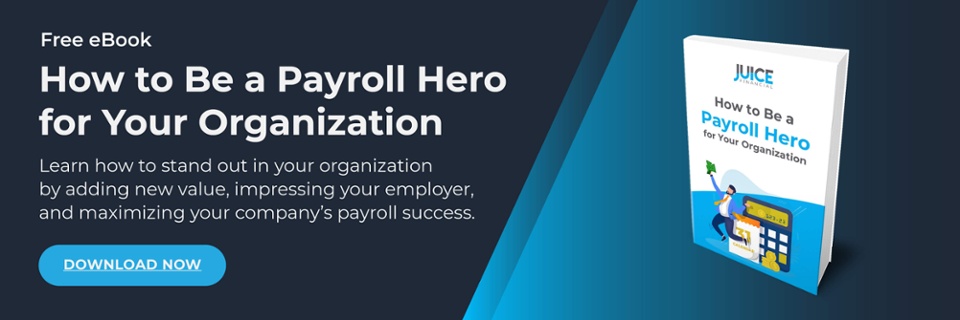Employee retention is a tough battle, and it’s only gotten worse over the past couple of years. The Great Resignation is the term coined to describe employees leaving their jobs to seek better opportunities, benefits, or personal fulfillment elsewhere—a trend that started gaining traction in early 2021.
As of November 2021, 47 million people had left their jobs, and that number isn’t slowing down. The American workforce continues to see a surge in mass exodus—as of January 2022, employee turnover hit more than 4 million resignations.
How Hiring Managers can Fight the Great Resignation
During this Great Resignation era, employers need to focus on Great Retention. And that means finding new ways to attract and retain the right people. It’s time for hiring managers to take note of these trends and adapt. People aren’t leaving the workforce entirely, though; they’re going to seek higher-paying positions, improved work environments, and a better work-life balance.
With that in mind, it’s no wonder that restaurant and service-based industries have seen the highest employee retention issues with a 66.3% turnover rate (above the US national average of 57.3%). The turnover rate is influenced by the comparatively low pay, irregular hours, and high-stress positions that are common across the industry.
Pay is often the first thing that comes to mind for employees and employers. But it’s not the only option to bolster your retention efforts. Endlessly amping up funding to retain minimum wage positions isn’t a practical or sustainable business practice. Increasing benefits surrounding pay, though, can have a significant advantage for lower-wage employees making $30k or less, who are also more likely to be unbanked or underbanked.
Making Money More Accessible with Reloadable Paycards
44 million people in America are underbanked or don’t have a financial institution at all. Underbanked is a term for a person who utilizes alternative money services such as check cashing, wire transfer services like Western Union, or payday lenders.
Unbanked defines people who have no financial institution backing at all. Underbanked and unbanked workers compound the stress of low wages with a lack of access to the electronic world of finances. When an employer issues paper checks, these unbanked employees have to utilize check-cashing services that require fees from their hard-earned money.
Furthermore, once an unbanked person has their paycheck in hand, they risk carrying cash and inconveniences such as taking time off work to pay bills physically. Providing employees with an alternative to banking like a pre-paid card is a solution that helps unbanked or underbanked people participate in electronic transactions when they otherwise don’t have access. In other words, you’re making it easier for your employees to access the essentials they need like gas and food.
If you still think that access to banking isn’t a problem for your workforce, keep in mind that one-in-four employees making less than $30k don’t have bank access. In other words, payout cards for payroll access are a big help to nearly 25% of the US population.
Implementing payroll cards for wages provides these employees access to electronic transactions. It improves the security of unused funds for those who would otherwise be stuck carrying cash. And on the other side of the fence, payroll cards also serve company HR departments as a straightforward, streamlined method for distributing wages. So, taking advantage of payout cards can be a win-win for both employers and employees.
Reloadable Paycards offer both the employee and employer:
- Security: Paper checks contain sensitive information for both employees and businesses. Furthermore, it reduces costs associated with printing, signing, and mailing paper checks.
- Efficiency: Reloadable payroll cards are easier to disburse for employers and are better than carrying cash for the unbanked employee.
- Increased Productivity: When employees have payment on a card, they spend less time physically going places to conduct financial business and worrying about financial matters.
- More Opportunity: Access to payroll cards provides a comprehensive solution for employees needing access to online bill-pay options, security in remittance practices, and a safer alternative to keeping unused wages. They’re also straightforward to set up for disbursement from the accounts payable side.
Earned Wage Access Improves Employee Motivation
Over 60% of Americans are living paycheck to paycheck, and it’s not just the working class. Many hourly employees are making just enough to cover their monthly living expenses. The rising cost of living compounds these issues, and employees are experiencing increased stress surrounding their financial status.
The traditional bi-weekly or monthly system of paying employees can cause increased pressure when employees wait for their earnings to pay their bills by the due dates. Pre-paid cards offer employees access to benefits like same-day pay or earned wage access (EWA) while increasing employee satisfaction. It’s easy to connect the dots between a greater sense of security and enhanced motivation to work as your employees spend less time worrying about their financial woes.
Ask yourself if you can really afford not to try prepaid cards. Your productivity is already taking a hit, and this is one benefit that might help. Employees who are overly burdened by their financial obligations spend an average of 3 or more hours of work time attending to personal financial matters. It’s worth a try, plus providing same-day pay is easier than you might think.
Juice Banking Can Help Improve Retention and Moral with Better Banking Solutions
The simple truth is – the working class can’t afford to wait on funds, and they’re getting frustrated about it. The Great Resignation has forced employers to provide real solutions for the issues that drive worker satisfaction and retention.
Meet the needs of your retail, restaurant, or service-based industry workers by providing comprehensive solutions to payment options that matter while saving you hectic processes of disbursement. Improving the perceived value that your workforce feels helps them stay motivated for you.
Juice Financial can help you improve employee satisfaction surrounding pay issues with reloadable paycards and access to EWA, which in turn help your business retain employees and increase work productivity. Juice Financial’s reloadable paycards also provide the 44 million underbanked or unbanked Americans with better access to a more secure way of electronic transactions. This is good business for both the employee and the employer.

